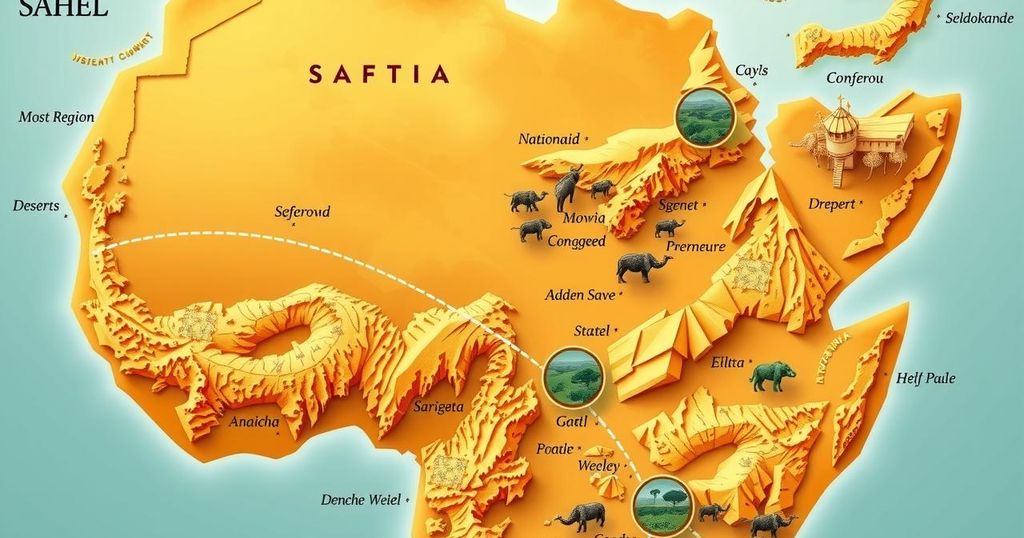Togo is exploring membership in the Alliance of Sahel States (AES), which includes junta-led Mali, Burkina Faso, and Niger. This decision could enhance regional cooperation and provide essential port access for these landlocked nations. Togo’s Foreign Minister has indicated that joining the AES is a strategic move aimed at boosting trade and military collaboration amidst growing jihadist activities in the region.
Togo is currently seeking to join the Alliance of Sahel States (AES), which includes junta-led Mali, Burkina Faso, and Niger. This affiliation could significantly benefit Togo by granting access to its port, which is essential for the access needs of these landlocked countries. Foreign Minister Robert Dussey has indicated that Togo’s membership is a strategic choice that will enhance regional cooperation and trade opportunities.
In recent statements, Foreign Minister Dussey highlighted Togo’s interest in AES membership, making it clear that this decision is vital for economic solidarity in the region. Analysts assert that membership could lead to increased military cooperation and better intelligence sharing, particularly in light of growing jihadist activity in northern Togo, bordering Burkina Faso. The AES countries, striving for sovereignty from Western influence, have previously utilized Togo’s ports due to tensions with neighboring Ivory Coast and Benin.
Political analyst Madi Djabakate noted the potential for economic benefits and enhanced military collaboration if Togo joins the AES. The AES leaders have faced challenges in controlling jihadist threats since their ascension to power via coups between 2020 and 2023, with plans to form a joint force of 5,000 troops aimed at bolstering security.
Togo’s engagement with the AES aligns with a broader pan-African movement towards unification amongst nations long considered divided. President Faure Gnassingbe advocates this stance, bolstered by public support for pan-African policies. Meanwhile, the AES nations have resisted external pressure for immediate elections, choosing to extend their political transitions.
The warming relations with the AES may serve as a distraction from internal criticisms regarding Togo’s new constitution, which some claim empowers Gnassingbe to retain power indefinitely. Opposition figures express concerns that joining the AES could shield Togo’s government from the civil liberties regulations imposed by the Economic Community of West African States (ECOWAS).
Togo maintains a history of cordial relations with military-led regimes and has acted as a mediator between ECOWAS and these powers. Analysts note that Togo could potentially uphold membership in both ECOWAS and the AES, emphasizing that alliances can exist simultaneously without exclusive commitments.
However, some experts warn that Togo’s potential alignment with the AES could hasten ECOWAS’s decline, exacerbating regional instability. Ultimately, while Togo pursues new alliances, its historical ties to ECOWAS remain critical, particularly as its port at Lome serves as a vital access point for the region.
In summary, Togo’s interest in joining the Alliance of Sahel States signifies a strategic move towards enhancing regional cooperation and securing economic benefits through access to its port. As it navigates partnerships with both the AES and ECOWAS, Togo faces internal and external pressures that may influence its political landscape. The evolving dynamics within West Africa underscore the delicate balance Togo is attempting to maintain amidst shifting alliances and challenges posed by security threats.
Original Source: thedefensepost.com






